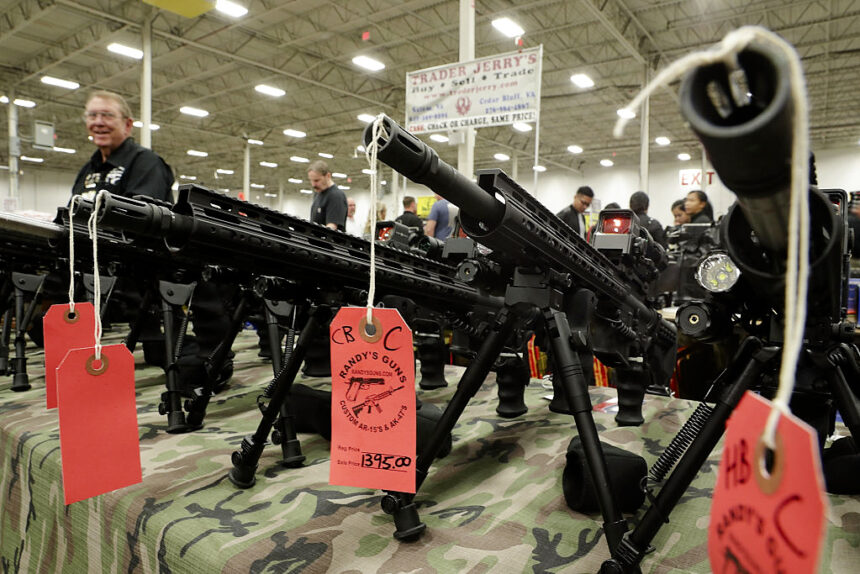The federal rule in question, often referred to as the ‘gun show loophole,’ targets individuals who sell firearms at gun shows for profit. Recently, a federal judge in Kansas decided not to halt the nationwide enforcement of this rule, which mandates that anyone selling guns primarily for profit must obtain a federal license and conduct background checks. This rule has been a subject of contention among gun show merchants.
The ruling was a response to a lawsuit filed by Kansas, 19 other states, three individual gun collectors, and a collectors association based in Wichita. The lawsuit, initially filed in Arkansas and later transferred to Kansas, challenged the constitutionality of the rule, arguing that it infringes on the Second Amendment and circumvents Congress by expanding background checks.
In the judge’s decision in Kansas, he noted that the plaintiffs’ concerns about potential harm were speculative and did not sufficiently support their case. While the plaintiffs may have grounds to succeed in the future, they failed to demonstrate a strong likelihood of success at this stage.
The rule, developed by the Department of Justice and the Bureau of Alcohol, Tobacco, Firearms, and Explosives (ATF), was finalized in April. It redefined what it means to be “engaged in the business” of dealing firearms, requiring those selling guns for profit to acquire a federal license and conduct background checks.
Exceptions to the rule were made for hobbyists, antique gun collectors, family transfers, and occasional sales for personal collection purposes. The key factor in these exemptions was that sales were not primarily motivated by profit.
The rule aimed to address the loophole that allowed thousands of guns to be sold annually at unlicensed dealers without mandatory background checks. Supporters of the rule viewed it as a necessary measure to prevent prohibited individuals, such as convicted felons, from obtaining firearms.
Vice President Kamala Harris emphasized the importance of closing this gap in the background check system to prevent further harm. On the other hand, critics saw the regulation as an unconstitutional restriction on gun ownership.
Despite the ongoing legal challenges, some state officials, like Kansas Attorney General Kris Kobach, believe that the rule will eventually be overturned. While a Texas judge blocked enforcement of the rule in Texas, the decision did not apply to other states involved in the lawsuit.
The Florida lawsuit is still pending, adding to the ongoing debate surrounding the ‘gun show loophole’ rule.
Can you rephrase this sentence?
Source link





